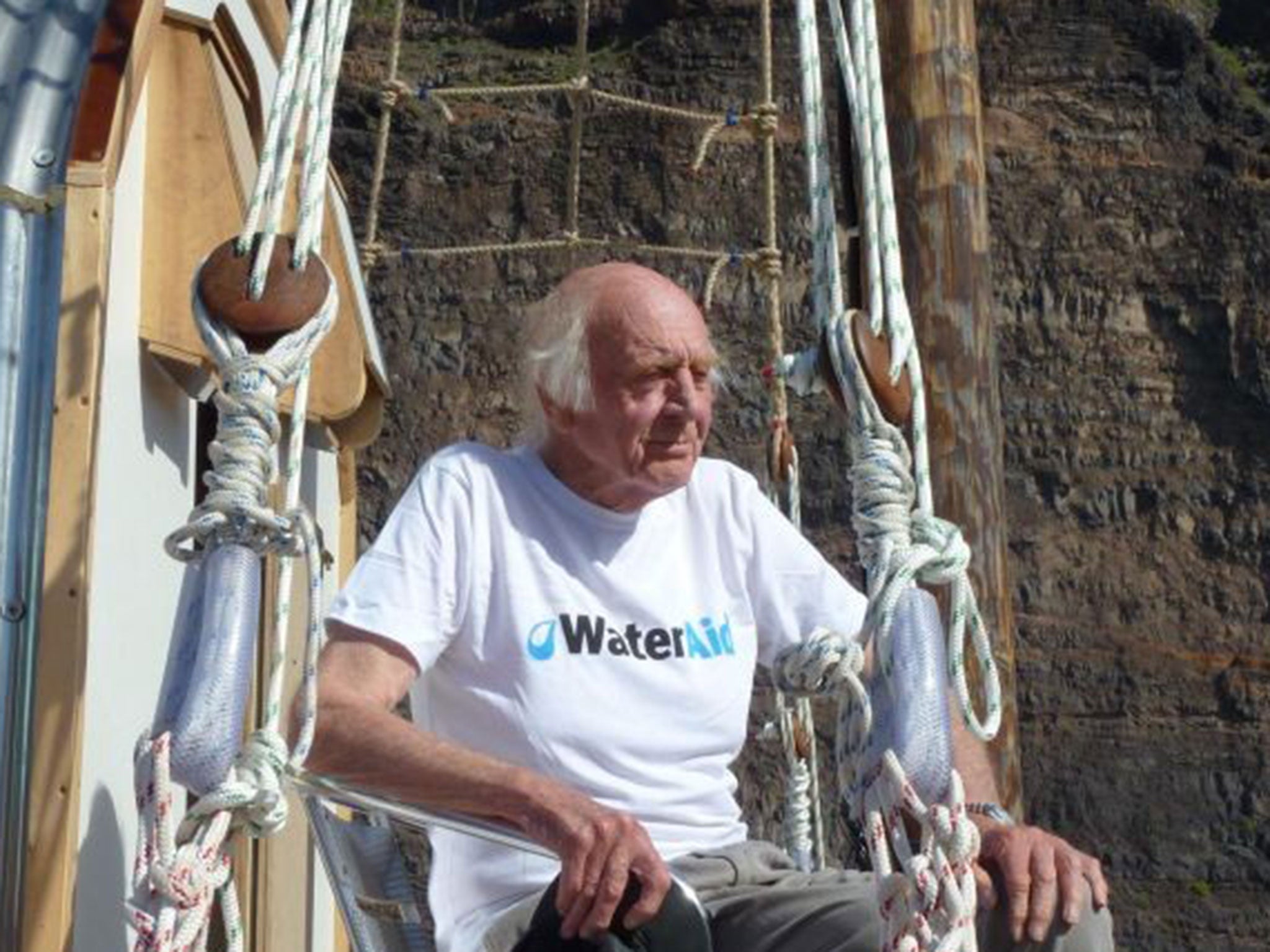Anthony Smith: Writer and adventurer who in his eighties sailed a raft made of plastic from the Canaries to the Bahamas

Against the advice of well-meaning doubters, the author, explorer and inveterate adventurer Anthony Smith sailed across the Atlantic on a sail-powered raft. He was in his eighties. A sailor, pilot and balloonist, he had travelled the length of Africa in both directions by motorcycle. He was appeared on television and wrote articles and more than two dozen books.
But the voyage he planned in his eighties led people to question his sanity. “Other people use that word, mad, all the time,” he said after his crossing. “But I was determined. So I just went ahead and did it.” Smith’s five children, he said, were not “totally co-operative.”
His raft was named Antiki, a reference to Thor Heyerdahl’s Kon-Tiki, which made a celebrated voyage across the Pacific in 1947. Crew members were recruited through an advertisement seeking older people who were “serious adventurers only.” Smith and his crew of three – Andrew Bainbridge, David Hildred and John Russell, none younger than 56 – set sail from the Canaries on 30 January 2011.
No great sailing skill was demanded on the Antiki, which measured about 20 by 40 feet and rested on an array of plastic pipes. The raft had no motor and was powered by a single sail. “You don’t have to do much,” Smith said of navigating. “The wind and the current take you.”
In the first week the raft’s two rudders broke. After about three weeks the supply of fresh food was gone. In 10 weeks the wind and current took Smith from the Canary Islands, off the African coast, to the Caribbean island of St Martin, which he reached on 6 April after more than two months at sea.
Raft travel was slow going. Sailing day and night, Smith and his crew made their way across the ocean at about 2.4mph. Because Smith missed his original destination of Eleuthera in the Bahamas, he embarked on a second trip in 2012, sailing from St Martin to Eleuthera with a crew of two women and three men.
His voyage was inspired by his interest in a Second World War story of survival at sea. After their ship was sunk, two sailors had drifted across the Atlantic in an 18ft boat for 70 days before landing at Eleuthera. “That whole story fascinated me,” he said. As a young man, lack of funds had kept him from trying to duplicate the voyage, and later he was held back by job responsibilities. Finally, he said, when he became “very much older,” the idea of a raft voyage still gripped him. “Am I supposed to potter about, pruning roses and admiring pretty girls?” he asked. “Or should I do something to justify my existence?”
Smith was born in 1926 in Buckinghamshire and grew up at Cliveden, the Astor family’s estate which was managed by his father. During the Second World War he served in the Royal Air Force Reserves. He studied zoology at Oxford University and as a young man made an expedition to Iran, exploring underwater tunnels and discovering a new species of fish, which was named for him. Later he wrote for the Manchester Guardian then left to head the South African magazine Drum, which he described as “the voice of black unrest.” His return trip was made by motorcycle. He worked for The Guardian and spent six years as science correspondent for the Daily Telegraph.
On leave from that job, he flew a hydrogen-filled balloon around Africa, a trip that supplied material for another book. He was thought to be the first Briton to make a balloon crossing of the Alps. As a founder and long-standing head of the British Balloon and Airship Club he was a consultant on the films Chitty Chitty Bang Bang (1968) and Superman II (1980).
He also wrote The Body (1968), which was praised by Alistair Cooke as a masterpiece and sold over 800,000 copies; it was later reissued as The Human Body and tied in with a BBC series of the same name. Years later he published a companion volume, The Mind.
He continued to make expeditions by boat and balloon, which led to more books. He also appeared on radio and television. His raft voyage generated another book, The Old Man and the Sea, which is due to be published next February. As justification for confronting the hazards of the sea at an advanced age, Smith would quote a line from TS Eliot’s Four Quartets: “Old men ought to be explorers.”
Anthony Smith, journalist and adventurer: born Buckinghamshire 30 March 1926; married firstly Barbara Newman (marriage dissolved; three children), secondly Margaret Ann Holloway (one son); and one daughter; died 7 July 2014.
© The Washington Post
Join our commenting forum
Join thought-provoking conversations, follow other Independent readers and see their replies
Comments